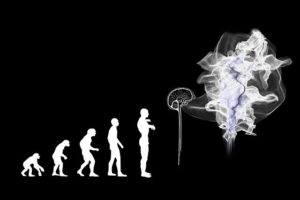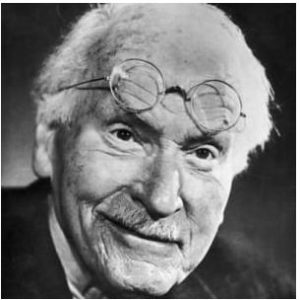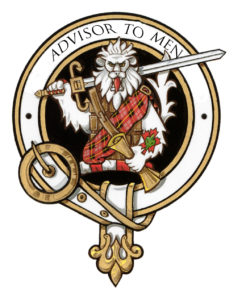ALPHA/BETA
One way to approach this subject is to look up Frans de Waal’s video on Chimpanzees to better understand the term alpha.
Labeling someone an alpha or beta is demeaning to people. For one thing, no such thing exists in humans. Why not? Because human life is too complex for such a simple term.
If we were limited to a highly predictable existence where we ate leaves all day and slept in a nest of grasses at night, interspersed with banging a few females, maybe. But, we don’t.
I like to say that if you are broken down at night in the middle of buttfuck nowhere your money or muscles don’t matter. The only alpha around is the tow truck driver who shows up to rescue your stranded ass.
Men defer to expertise. That’s one reason we build cultures. And, everyone has something to offer. None of us is expert at everything. “None of us knows the all of anything,” is the quote by Robert Louis Stevenson my father had written in marker on his bookcase at home.
Sure, we exist on a continuum of maternal care at one end and predatory aggression at the other, and we tend to form hierarchies. But those tend to always be job or context specific.
When the general gets to a river with his army, he calls in the raft guys to get across—if they are successful, they win the day and are celebrated (like the tow truck operator in the middle of the night). When the general gets to a castle wall, the siege machine operators will carry the day. And why is there a general? It’s because he knows enough shit to lead an army. It’s all context. In fact, context is everything.
If you work at a high-tech company and you’re the smartest engineer out of 200 and can work hard and be social, expect to rise to the top. Everyone under you is beta? Come on.
No man is all things in all situations.
The other issue is labeling in general doesn’t allow as easily the transition from weakness to power. It says you are “this way” or “that way” when in fact, all of us have the capacity to be weak at times, just as we all have the capacity to be more powerful.
I’ve had occasion to think hard about labels because of my own life and expertise around addictions. I’ve known too many hard-core gangsters who became decent men, myself included. And, I have known people written off as hopeless alcoholics or junkies who defeated their compulsion. Too many to call them names.
I much prefer to use weakness and powerful because any weak man can act and be more powerful in an instant if he’s called to do so by his spirit. That’s why we love the come-from-behind story of the underdog vanquishing obstacles to succeed at something. From weakness and insignificance to power and significance is within reach for each and everyone one of us.
Self concept is how you see yourself contrasted against how you believe others see you. One is the character you build and the identity you form, the other is the remnant personality and habits derived from your environmental feedback loop.
The younger you are the more you experience your environment physically (read family, school, etc.). Those experiences are recorded into the very neurons of your body. That’s where feelings and your subconscious exist. You have the same neurons for life.
The male brain doesn’t fully develop until age thirty. That’s why addictions are often picked up before that age. It’s also the age where a significant amount of people give up an addiction on their own. (the rest need extra help and keep men like me busy).
So why would we saddle a male with a term like beta? I’ll tell you why: Competition derived from predatory aggression and our tendencies to hierarchies.
There are two main ways males tend to compete.
In one way, we go head to head, mano a mano, or often against a group of men. Each lays down their best performance and may the best man win. This is how we discover who among us has expertise we can use for the group’s benefit. Afterwards, in that context, we remember who our top man or men are, so that if that situation arises again, we know who to call.
Men tend to have relationships with a wide variety of groups of other men. They can form loose bonds and move in and out of these groups with a fair amount of ease. Women, on the other hand, tend to have just one or two (and usually no more than five) girlfriends she guards jealously. These she uses for emotional regulation. Men generally have no such need.
This is another reason why men build cultures; and why women tend to stress-test them.
But it’s the second way men compete which is often problematic: It’s the put down.
Men test each other from an early age. You can see it in kids as young as grade two or three, where boys push each other to find out if you are a girl or a boy. Researchers who study this figure it’s because it is boys who grow up and defend their tribes and nations.
It is said the calling out and such is an early form of making sure the other males will be able to stand next to you and fight the enemy later in life. The literature suggests an innate trait.
Little boys create imaginary enemies early in life. Little girls do not do this. Give a piece of cloth to five-year-old kids and a boy will make a cape and become a superhero; a little girl spreads it on the ground and has a picnic with her dolls and stuffed toys.
If you hook up fMRI to males and present them with two situations, one where he competes head to head fairly, and one where he competes by putting others down, the same reward centers of the brain light up, and doesn’t discern between the two.
This may be why bullying will never completely go away.
Examining these two approaches used by men, one is prosocial, while the other is not. Anything beyond mild ball busting is, in most cases, very much antisocial, but derived from that insecurity found in children who test each other’s interdependence.
We don’t apologize for being men. That’s my stance. Yet, that doesn’t mean we don’t try to become better men. Or, in fact, grow into becoming the best men we can be.
So, men’s way of challenging each other exists on a competition continuum. It might go from head to head group or individual competing to mild ball busting to calling each other out directly to outright bullying to punching each other in the face.
I’d ask anyone reading this if calling others “beta men” is just a way to affirm their own status, a way to aggrandize themselves at someone else’s expense. What’s behind that?
Given what we know about how people take in information from their environments below age thirty, who does it help to call someone beta?
That part of self-concept which derives from how you believe others see you can both propel you forward but also become a burden. For many, their family of origin programming and childhoods are a cross they bear.
Trust me when I say I have lived too faulted a life to judge anyone else’s with much conviction.
I was once diagnosed an antisocial after I shot someone and spent 30 days in a locked psychiatric ward being assessed by the courts. You can bet that label followed me thereafter.
I’ve also been weak in my lifetime enough times to know people can and do change. I’m living proof a man can claim his power for good if he wants. Yet, it is only by bringing things into awareness that we advance the possibility of change.
Which brings me to my last point: something I call PHD. The paradox of human development says adults make your decisions when you were a child experiencing your environment physically (remember, your brain does not fully develop until near age 30).
You needed protection, shelter, sustenance, and nurturing, and so, created a conforming ego to survive. You did this with the heart and mind of a child, internalizing sensations, images, behaviours, feelings, and meanings, which obscured your true self.
We all have this judgmental side to us as a result. When we judge ourselves, others, or circumstances harshly, we are operating from the basis of what Freud called the superego. Carl Jung called it the conforming ego.
It’s Grandma’s law: “eat your vegetables before dessert.” It’s: “don’t talk back to adults.” It’s all the rules you were told to follow… for your own good. It’s the demand you tow the line.
It’s that part of you which was taught to you by parents and teachers and other adults around you as a child echoing in the back of your mind, often showing up as the “inner critic.”
These thoughts are usually expressed under the tyranny of words like “should, would, could, what if, if only and must,” serving to remind you that you are not good enough, keeping you fearful and uncertain. Not only do we beat ourselves up under this conforming ego, but we project it out to the people around us and our circumstances. We make demands of others.
We have studied this: it’s not your best side. I go further: your quest in life is to dampen this conforming ego and develop your own identity, one which manifests your gifts. The conforming ego is stultifying, existing only to keep you safe. It keeps you playing small.
Watching Frans De Waal’s talk about alpha chimps—who do spend all day eating leaves and sleeping in nest of grasses at night and banging chimp wenches—you will discover the basis of what Jung called the King archetype in humans. Chimp DNA is less than 3% different than that of humans (male and female humans have less than a 2% difference).
De Waal’s alpha chimp not only get to bang the wenches, but also get to look after ALL the members of the troupe, right down to the weakest. Roosters do the same thing.
And, if an alpha chimp doesn’t work to benefit the whole troupe, a few lesser males will get together and take him out. Humans do the same thing. A version of this leaked out from Vietnam vets in the 1970s about “fragging” a bully unit commander. In the heat of battle, it was “sorry, somehow, Sarge took one to the back of the head.” Happens with gangsters all the time as well.
That’s another compelling reason why using the term alpha for humans is misplaced.
Archetypes are instinctual energies found in all of mankind. Everywhere you go, people are afraid of the dark. Everywhere you go, people are afraid of heights. And, the same metaphors are repeated in cultural histories the world over despite being continents and millennia apart.
Carl Jung said these archetypes were proof of the existence of a “collective unconscious.” One such energy is the King archetype. It exists in every man.
According to Jungian analysts Moore and Gillette, the archetype of the King is responsible for order, fertility, and blessings. What is a realm without order?
Now, we are not referring to wanton order imposed by a tyrant. No. We are speaking of order in the sense the needs of the many outweigh those of the few. We are talking Golden Rule.
Fertility is all about the mental, physical, social, and spiritual health of the ruler whose acts are in service of the greater good. It’s the benevolent King. When the King is healthy and rules with passion for his people, the crops grow, the granaries and pantries of the kingdom are full, and the loyalty of the people is assured. And, the women willingly produce offspring.
Blessings are the Kingly equivalent of encouragement. In a monarchy, the King might “Knight” a subject as a way of recognizing their contribution to society. He may even create an “order” bearing their name. The King can hand out “merits” and other rewards to the citizens of the realm.
Suffice it to say, a man aware of his King energy will see the good in people, often before they see it in themselves, and makes sure to let others know they are appreciated.
Look, I’m not perfect at this but you can bet we all live more powerful lives when we embrace our King energy and live up to our “true self.” Judging others always comes from a place of fear. Better to just notice how others are and then rise to your best self.
The advantage of the higher self is that it sees the silver lining, the gift in anything. This energy can spot the gold in others and serves to bring out people’s best.
Your duty to the universe is to find your true self once more.
It is to examine the beliefs, meanings, sensations, images, feelings, and behaviours inherited from your PHD upbringing, discarding what you have outgrown while adopting a truer identity with which to manifest your gifts.
Not because you can, not because you want to, but because it is what you owe.
Stay powerful, never give up
cw
©CKWallace, June, 2020, all rights reserved
Advisor to Men, Mentor at Large
advisortomen.com







